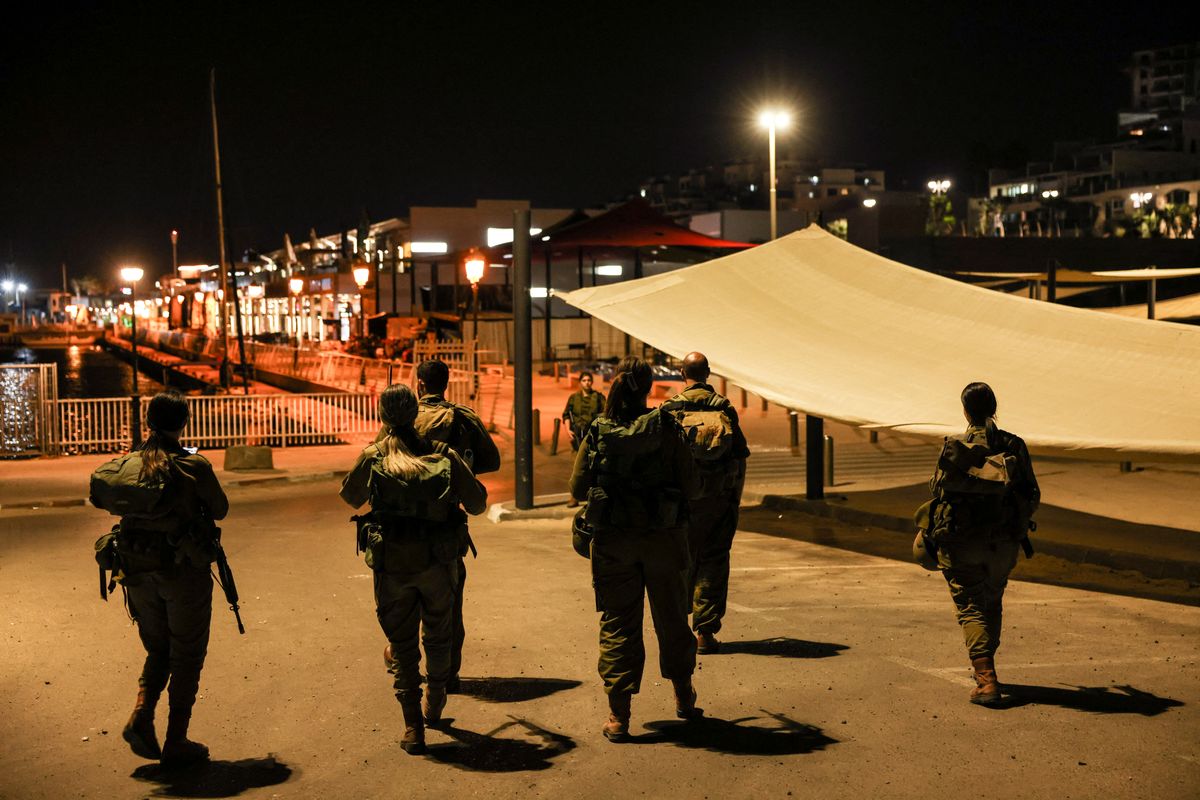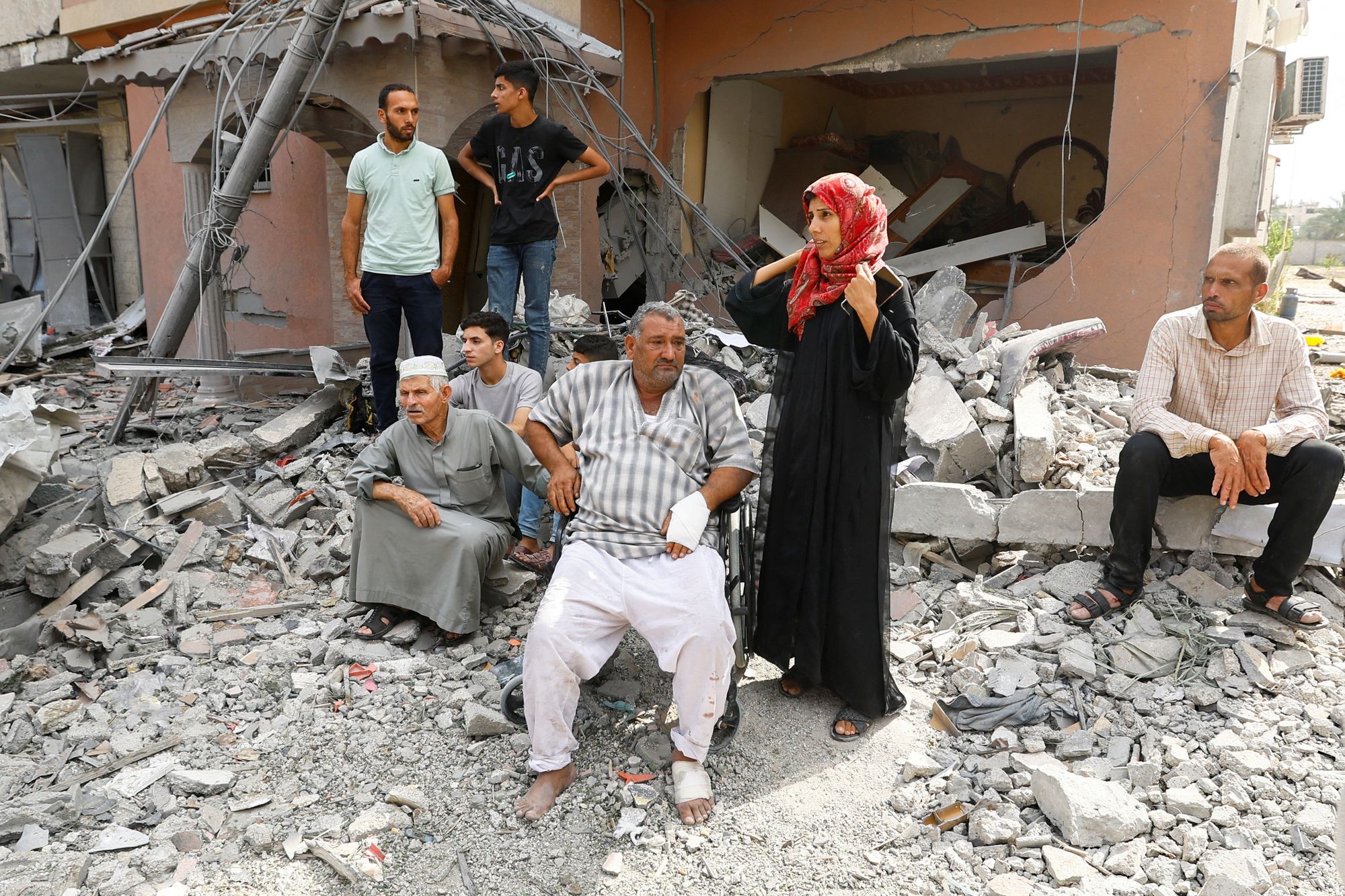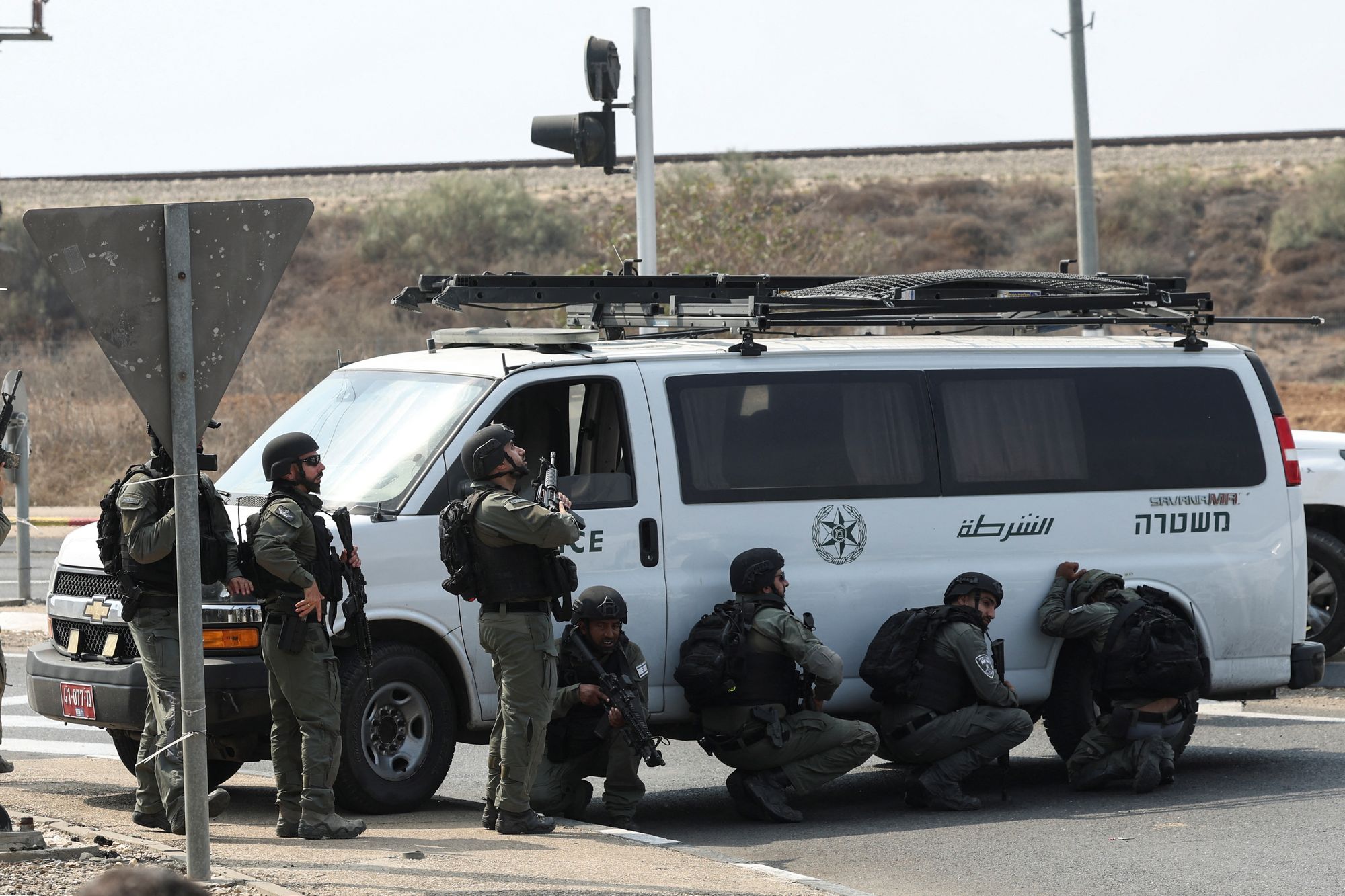Israel is at war with Hamas – here’s what’s happening on the Gaza strip
On Saturday morning, Gaza militants – often referred to as Hamas – launched a surprise attack on Israel in one of the biggest invasions of Israeli territory in 50 years.

A few minutes every morning is all you need.
Stay up to date on the world's Headlines and Human Stories. It's fun, it's factual, it's fluff-free.
The backstory: The land that is now seen as Israel and Palestine was all just Palestine until 1948. In 1948, Israel was officially formed, and Palestinian residents were forced out of the central part of the land during what’s known as the “Nakba.” Later, Palestine was split into two territories, with Israel between them – the West Bank and Gaza. Gaza territory is south of Israel. Its airspace, borders and sea are controlled by Israel. Electricity and energy there are also supplied from Israel. People and goods cannot freely enter or leave the Gaza Strip without permission from Israel or Egypt.
More recently: Since 2007, Gaza has been physically blockaded, with Israel trying to keep the militant group Hamas at bay after it took power. Today, over two million Palestinians live in Gaza. In 2021, Israel constructed what’s known as the “Iron Wall” blockade on the territory boundary, which added underground sensors, radars and cameras. The idea was to ward off threats from Hamas.
In the past year since Prime Minister Benjamin Netanyahu’s far-right government came into power in Israel, there’s been more tension and violence between Israeli security forces and Hamas. There have been more military operations in cities like Jenin, and settlement constructions have restarted in the West Bank. Earlier this summer, a UN expert submitted a report to the UN, describing Palestinian territories as having been transformed by Israel into “open-air prisons.” Israel dismissed this report. Over the past few months, the US has been pushing for Palestinian supporter Saudi Arabia to normalize ties with Israel, which there has been some progress on.
The development: On Saturday morning, Gaza militants – often referred to as Hamas – launched a surprise attack on Israel in one of the biggest invasions of Israeli territory in 50 years. They fired rockets into mostly southern Israel, including Tel Aviv. Fighters were able to break through the blockades surrounding Gaza. This series of attacks has killed hundreds of Israeli civilians and injured thousands more – the exact numbers vary, but the death toll is estimated at over 1,000. There are also reports that over 100 people have been kidnapped from Israel.
In response, Israel has launched its own attacks on Gaza, and Netanyahu has vowed that Hamas will “pay an unprecedented price.” Hundreds of Palestinian civilians have died as well, with Israel launching airstrikes, one of which completely flattened a residential building. Palestinians are accusing Israel of striking civilian and residential infrastructure without any real connection to Hamas. Israel has also cut off gas and electricity to the region.
Notable allies of Israel, like the US, have vowed to support it in defending itself, sending over weapons and other supplies. Meanwhile, Saudi Arabia called on both sides to de-escalate. On Saturday night, demonstrations in the West Bank led to Israeli fire, killing five Palestinians. On Sunday, Israel formally declared war against Hamas, swearing to turn anywhere the militants hide and operate from into “rubble.” Netanyahu warned Palestinians to leave ASAP. But they have no way to leave with the blockade in place.


Key comments:
“The entire system failed. It’s not just one component. It’s the entire defense architecture that evidently failed to provide the necessary defense for Israeli civilians,” said Jonathan Conricus, a former international spokesman for the Israel Defense Forces. “This is a Pearl Harbor-type of moment for Israel, where there was reality up until today, and then there will be reality after today.”
“We will win this war, but the price is unbearable,” said Prime Minister Benjamin Netanyahu in an address Saturday night, warning of the “challenging days” ahead. He added, “We will turn all the places that Hamas hides in and operates from into rubble.”
“We are prepared for all options, including all-out war,” the deputy head of the Hamas political bureau, Saleh al-Arouri, told Al-Jazeera TV. “We are ready to do whatever is necessary for the dignity and freedom of our people.”
Saudi Arabia said it had kept warning about “the situation exploding as a result of the continued occupation [and] the Palestinian people being deprived of their legitimate rights.”
“The Middle East region is quieter today than it has been in two decades,” US national security adviser Jake Sullivan said last week.




Comments ()